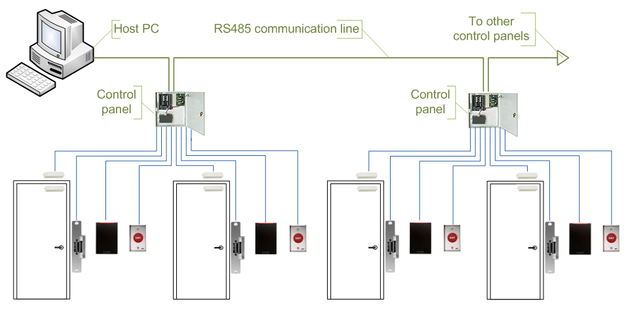A brief review of access control models

Mandatory access control
MAC (mandatory access control) for example is in use by Security Enhanced Linux. SE-Linux utilizes mandatory access controls and deliveries it open source to anyone who wishes to implement this level of security. Mandatory access control is something primarily marketed to governments or other institutions which have exceptionally high security concerns. Security Enhanced Linux was funded by the NSA to bring mandatory access controls to the Linux environment (Dyck, 2001).
Role based access control
RBAC (role-based access control) puts the power to determine access in the hands of the administrator. The administrator role defines the “roles” and each role is granted rights.(Goodrich & Tasmania 2011, p.23). This sort of access control is good for organizations with role based hierarchy and centralized responsibility, power, and trust structures whereas the administrator role is absolute. A school or a hospital might benefit from RBAC for instance: “The advantage of role based access control is that no matter which access control framework is being used to store rights, the total number of rules to keep track of is reduced”(Goodrich & Tamassia 2011, p.24). The benefit of using RBAC is simplicity and efficiency, this is very important for certain organizations.
Discretionary access control
DAC (discretionary access control) is an owner specific approach. The owner is the most trusted authority in this setup. This is similar to how the owner of a copyright licenses access to the information, under the discretionary model the owner of the object under control can pick and choose who can access it. This is good for organizations which aren't heavily centralized or hierarchical. Linux/Unix typically relies on this sort of access control where the owner of the file determines who can access the file via read and write permissions. DAC is suitable for virtual environments (Wright, 2010) such as second life, games, Desktop operating systems, music, multimedia etc.
Overview and discussion
There are other forms of access control as well that haven't been mentioned such as conditional role-involved purpose-based access control.(Kibir, 2011). CPAC is defined as: “Based on conditional role, access permissions are assigned that represent what can be accessed for what purpose to roles under certain conditions, On the other hand, conditional purpose is applied along with allowed purpose and prohibited purpose in the model. It allows users using some data for certain purpose with conditions”(Kibir, 2011). The benefit of a conditional purpose based approach is that access can be managed and controlled in a more precise and specific manner, the purpose-based approach allows the purpose for accessing the information to be known and verified. Individuals who don't have a verified purpose for accessing the information can be denied. This can help greatly with auditing and this sort of approach can prevent a rogue employee from accessing our private records.
Privacy depends on access control because privacy is a form of access control. Having a deep understanding of the risks and benefits of different access control models can help a security professional to determine which model is best for their organization.
References
Goodrich, M. & Tamassia, R. (2011). Introduction to computer security. Boston: Addison-Wesley.
Kabir, M., Wang, H., & Bertino, E. (2011). A Conditional Role-Involved Purpose-Based Access Control Model. Journal Of Organizational Computing & Electronic Commerce, 21(1), 71-91. doi:10.1080/10919392.2011.541007
Dyck, T. J. (2001). NSA to fund secure Linux. Eweek, 18(18), 67.
Wright, T., & Madey, G. (2010). Discretionary Access Controls for a Collaborative Virtual Environment. International Journal Of Virtual Reality, 9(1), 61-71.
AAA for me bro, (Access All Areas).
Downvoting a post can decrease pending rewards and make it less visible. Common reasons:
Submit
definitely needed this than you. Upvoted
Downvoting a post can decrease pending rewards and make it less visible. Common reasons:
Submit
Do lots of research before you select an access control system. The one at my work uses hardware that's about 20 years old, costing about $150 per module that does nothing that couldn't be accomplished by a raspberry pi, or possibly even a damn arduino.
Make your suppliers and contracters -earn- the money you pay them.
Downvoting a post can decrease pending rewards and make it less visible. Common reasons:
Submit